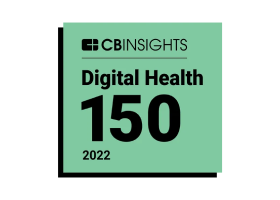

The next generation of care for women and families

Maven’s pioneering virtual care model is built around women and families, delivering better outcomes and lower costs for everyone.
2:1 clinical ROI and 4:1 business ROI
20% lower C-section rates, 32% lower NICU admission rates, and 36% avoid an ER or doctor's appointment
The first comprehensive women's and family health platform in the market, with award-winning innovation
We’re setting a new standard of care for families across geographies, cultures, and backgrounds.

Whole-person care
A holistic approach that offers comprehensive care for all families.

Exceptional outcomes
Dedicated Care Advocates and data-driven insights deliver better outcomes.

Lower costs
Proactive intervention reduces the need for costly procedures.
Support members through every phase, every journey–
all on one powerful global digital health platform
Lowering healthcare costs by raising the bar
Ongoing assessments, proactive check-ins, and human touchpoints drive industry-leading engagement, helping members identify risks early and prevent costly complications.


clinical return on investment
business return on investment
up to
lower C-section
rates
up to
lower NICU
admission rates
up to
reduction in unnecessary ER visits
Whole-person care that covers the entire family journey
Maven offers comprehensive care for everyone planning, starting, and raising a family. We harness the best of technology to deliver a higher quality of care, online and off.
Find out what partnering with Maven can do for you
Maven works with you to offer a new kind of care to women and families everywhere.

For Employers
Give employees the care they need and an inclusive benefit they’ll love.


For Health Plans
We don’t compete with traditional health plans—we complement them.



For Consultants
Find out why Maven is the leading family benefit that your clients need.
What clients say about Maven
The help, resources, and support I have received from Maven during my postpartum journey have been tremendously impactful. The virtual courses have been extremely helpful as well. I highly recommend Maven to everyone!
Snowflake Employee
Read the case studyWhat clients say about Maven
“Our employees are so very appreciative of this program. I’ve had people call me and say, “I couldn’t have come back to work without the support through Maven and SoFi.””
Debbie Westover, Senior Benefits Manager at SoFi
Read the case studyWhat clients say about Maven
“Maven has offered so many resources to both mothers and fathers—before they go out on leave, while they're out, and when they come back.”
Todd McCafferty, Benefits Manager at White & Case LLP
Read the case studyWhat clients say about Maven
“I'm a father of three and I'm super-proud of what Protective offers. I wish I had these kinds of services when I had my kids years ago!”
Bart Trench, Head of Benefits and Wellness at Protective Life
Read the case studyWhat clients say about Maven
“You can be a same-sex couple; you can do surrogacy or adoption; your husband can use it; your spouse at home can use it—it’s very inclusive and it’s also global.”
Lucy Avsharyan, Global Benefits Manager at United Talent Agency
Read the case study
Featured in

Comprehensive programs for complex journeys
From Fertility & Family Building to Menopause & Ongoing Care, learn how our programs support members through every phase of their reproductive and family health journey.
Explore our solutions →
Our Awards





Ready to get started with Maven?
Tell us which describes you, and we’ll get in touch with next steps.
Stand out as a leader in diversity and inclusion by supporting LGBTQ+ employees

Join a highly specialized on-demand network of over 1,000 women’s and children’s healthcare providers—the largest of its kind in the country.








%201.webp)







